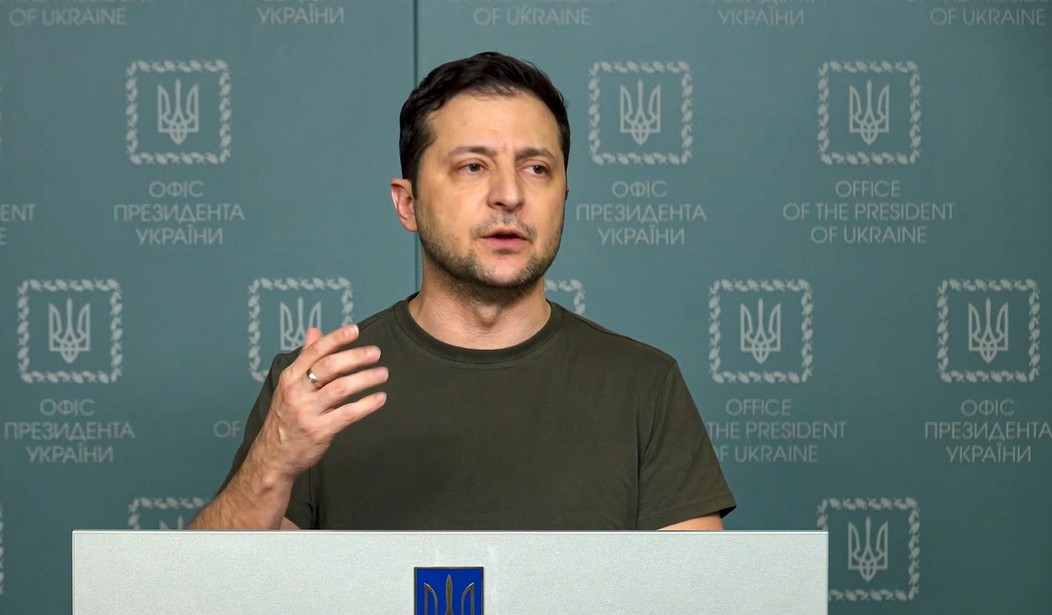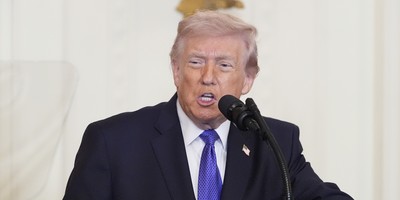When Hungarian rebels arose in 1956 to overthrow the Communist regime imposed by Joseph Stalin, President Dwight Eisenhower refused to send U.S. forces to aid the Hungarians.
Ike would not take America to war with Russia over a small country in Central Europe.
While the Hungarians were heroic and inspirational, Hungary was neither a member of NATO nor a vital U.S. interest. Moreover, it was on the Soviet side of the Yalta line dividing Europe, and agreed to by Franklin D. Roosevelt, Joseph Stalin and Winston Churchill at Yalta in 1945.
For similar reasons today, President Joe Biden has refused to send U.S. troops, ships or planes to attack Russian forces invading Ukraine.
Though a nation of 44 million and almost as large as Texas, Ukraine is neither a vital U.S. interest nor a member of NATO.
However, were Russian President Vladimir Putin to invade Estonia, whose population is 3% of Ukraine's, America would be obligated to go to war with Russia.
Does this disparity make strategic sense?
Should not America have the same freedom of action to decide whether to fight for Estonia as we do to decide whether to fight for Ukraine? After all, Ukraine is far larger and more populous and strategic.
In 1948, President Harry Truman refused to use force to break Stalin's Berlin Blockade. In 1956, Eisenhower refused to intervene to save Hungary. In 1961, President John F. Kennedy refused to use force to stop the building of the Berlin Wall.
Recommended
In 1968, President Lyndon Johnson refused to intervene when the USSR invaded Czechoslovakia to crush the pro-democracy "Prague Spring."
Yet, today, America's leaders do not have the same freedom not to act as did Truman, Eisenhower, Kennedy and Johnson. We are obligated to act. Why?
Because, since the end of the Cold War, we have expanded the membership of NATO, and there are now 28 nations of Europe we are obligated to defend if they are attacked.
Ukraine is not one of them, but five of them that border Russia or Ukraine -- Romania, Slovakia, Poland, Latvia and Estonia -- are currently providing Stinger or Javelin missiles to Ukraine to destroy Russian tanks, down Russian aircraft, and kill Russian soldiers in Ukraine.
If Putin retaliated against any of these countries for these arms transfers that are killing Russian soldiers, the U.S. would be obligated, under Article 5 of NATO, to fight Russia on behalf of these NATO nations.
Article 5 automatically conscripts the United States into a war with Russia, if Moscow retaliates against a NATO nation providing weapons to kill Russian soldiers.
Why have we willingly tied our own hands in this manner?
During 40 years of Cold War, America remained secure while East Germany, Poland, Czechoslovakia, Hungary, Bulgaria, Romania, Lithuania, Latvia and Estonia were all under Moscow's control.
These nations are all free today as a result of the West's victory in the Cold War. But why do all these nations have war guarantees from the United States when none of them, as the Cold War demonstrated, is a vital interest of the USA?
Why, after the Cold War ended in 1991, did we agree to fight a war with Russia, including a nuclear war, on their behalf when 40 years of Cold War demonstrated they were not essential to our security?
Today, by our refusal to intervene militarily in Ukraine, to slow or halt this Russian invasion, we are sending a message to the world.
That message?
Ukraine's independence is not vital to the United States. While a desirable goal, it is not worth our fighting a war with Russia to preserve.
Moreover, the independence of Ukraine is not worth the risk of using U.S. planes to establish a no-fly zone for Russian planes in the skies over Ukraine.
Indeed, had we given Putin assurances that NATO was closed to Kyiv, we might have prevented what has happened, because that was the first and most insistent of Putin's demands.
The heroic rhetoric we are hearing from our political and media leaders aside, the real message sent to Ukraine by our own and NATO's actions and inaction is this:
We will send you weapons, but we are not sending our troops, and we are not going to fight your war for you, or beside you, unless and until we decide that it is in our vital interest to do so.
Fortunately, we had not brought Ukraine into NATO, nor given Kyiv a war guarantee that obligated us to risk everything for a nation deemed not vital to us.
Those who prevented the U.S. from realizing former President George W. Bush's ambition to bring Ukraine and Georgia into NATO may have saved us from a war with Russia in which both of us could have suffered horribly.
Whether we go to war for a nation that was formerly part of the Soviet bloc should be a matter for decision by the Americans of that day and time -- not mandated, not dictated by our signature on a 73-year-old treaty, devised for another era and another world.






















Join the conversation as a VIP Member